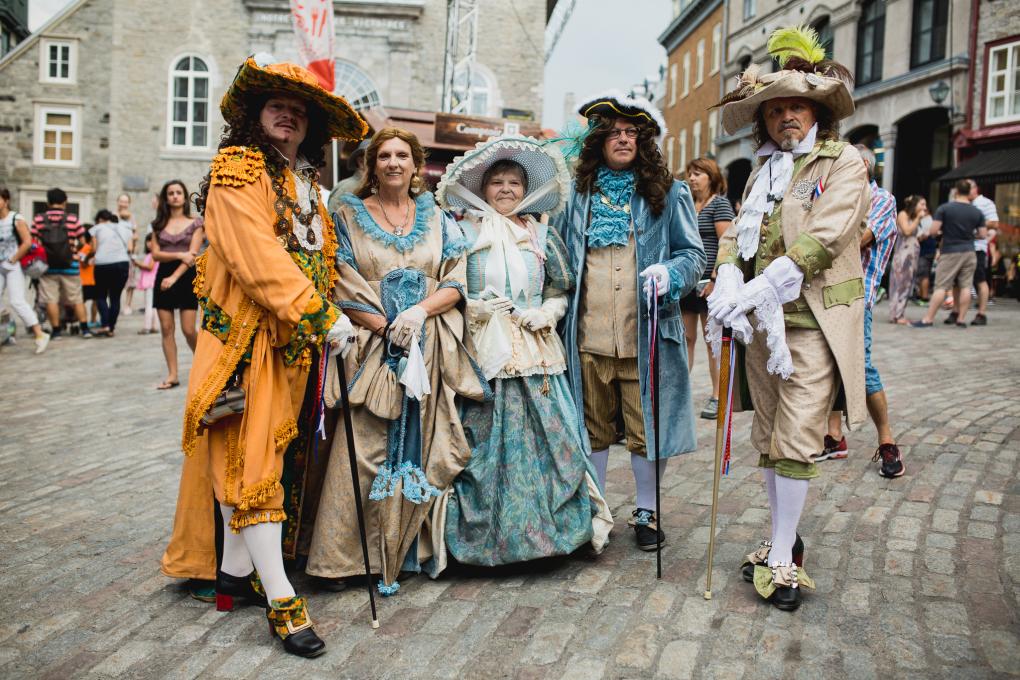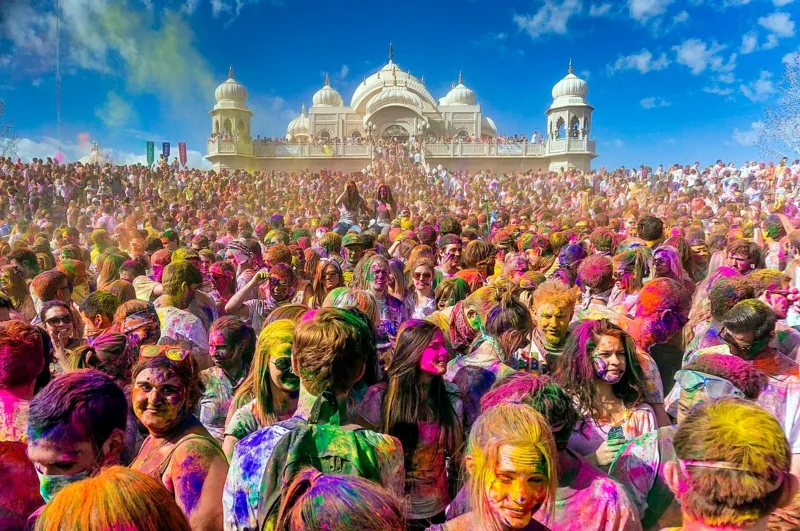France is a country with a rich history and vibrant culture, deeply rooted in its festivals and traditions. From the bustling streets of Paris to the quaint rural villages of Provence, French identity is shaped by centuries-old celebrations that bring people together for feasts, music, art, and theatre.
While these festivities can differ from region to region – reflecting local customs and beliefs – they all share an underlying purpose: honoring family ties, fostering social unity, and preserving cultural heritage. This article takes a closer look at how traditional festivals have come to define Frances’s national identity over time – from the iconic Tour de France bike race to small-town harvest festivals like La Fête des Vendanges.
It explores how public events serve as cornerstones of community life while providing opportunities for citizens to connect with their pasts and build bridges toward a brighter future.
Celebrating French Cultural Heritage through Festivals and Traditions
France is home to a rich cultural heritage, which can be celebrated through its many festivals and traditions. These activities provide an important way for the French people to connect with their history, customs, and beliefs.
From Mardi Gras in New Orleans to Bastille Day in Paris, these national holidays are deeply entrenched in French culture and bring people together from all walks of life. In addition to the larger celebrations that take place throughout the year, smaller local festivals also serve as powerful reminders of France’s past.
For example, La Saint-Jean-Baptiste celebrates the country’s patron saint while Fête des Vendanges honors grape harvesting season. Each event carries a unique flavor reflective of regional cultures and customs—a living reminder of Frances’s diverse identity.
The country’s traditional folk music remains popular today as well; songs like La Marseillaise embody the spirit of freedom that has long been associated with Frances’s national identity. Similarly, annual events such as the Le Tour de France cycling race provide an opportunity for communities across France to come together each summer and celebrate their shared pride and joy in being part of this great nation.
By sharing times at these traditional gatherings or simply gathering around family dinners on special occasions such as Christmas or Easter, French citizens continue to keep alive their cultural heritage by honoring old habits passed down through generations while connecting with modern-day values—allowing them to remain true to themselves even when faced with changing times outside their homeland.
Exploring the Influence of Religion on French Identity Through Rituals

Religion plays a pivotal role in shaping French identity through the rituals and traditions associated with festivals. The practice of religious ceremonies serves as a reminder of faith, shared values, and common memories that are important for understanding French culture and heritage.
From Mardi Gras to Easter Sunday Mass, these celebrations embody both nationalistic pride and spiritual devotion, making them an integral part of French identity. These rites are tied to long-standing customs which can be traced back centuries or even millennia.
Furthermore, they symbolize key moments in history such as the Feast of St John at La Rochelle or the Feast of Mary Magdalene at Rennes which recall significant events in the past. This is why traditional festivities remain so deeply embedded within France’s collective psyche today – because they provide a link between present-day life and ancestral legacies.
Not only do these practices bring people together physically but also spiritually; they remind us that we all live under one roof regardless of our beliefs or backgrounds. Through their celebration we reaffirm our belonging to this nation while simultaneously expressing respect for each other’s unique identities; this idea forms an essential part of what it means to be French today.
Festivals help cement our sense of unity by creating special moments where everyone can come together around shared experiences – singing carols during Christmas Eve mass or eating pancakes on Shrove Tuesday being just two examples out of many that have become intertwined with modern-day customs over time – yet still retaining strong links to their religious roots too
Examining the Role of Language in Shaping National Identity
The French culture has been shaped by its language since the country’s founding. Language plays a crucial role in forming and maintaining national identity, as it is often regarded as an expression of one’s history, values, and traditions.
Festivals and traditions are some of the most powerful tools to help define French identity and unite its citizens around common ideals. Through these celebrations, France can shape how its people view their nationhood and collective heritage.
In particular, festivals such as Bastille Day or Christmas have become integral parts of French culture that bring together families for celebration each year. Similarly, traditional dishes such as ratatouille or coq au vin represent regional flavors while also being part of a larger national culinary tradition steeped in French history.
Together, these events and dishes provide tangible examples that demonstrate how language can be used to craft a shared sense of identity within France’s diverse population.
Investigating How Legends and Folklore Contribute to a Common Culture

From the Carnaval de Nice to La Fête des Lumières in Lyon, festivals and traditions have a long history of playing an important role in shaping French identity. As these festivities bring people from all walks of life together, they also open up conversations about how legends and folklore contribute to creating a shared culture.
By looking at traditional stories that are passed down through generations, it is clear that these tales often revolve around values of bravery, loyalty, truthfulness, and friendship – ideas that can be seen throughout French society today. In addition to this cultural significance, many legends reveal interesting insights into France’s rich cultural heritage; with some stories originating from ancient Greece or Roman times while others incorporate elements of local customs such as ‘pagan rituals’. This connection between past mythology and current collective beliefs shows just how deep-rooted certain practices remain within the national psyche – something that helps to ensure continuity across different periods in French history.
Finally, by exploring both old folktales as well as newer interpretations of them in popular culture (such as films or TV series), we can gain further understanding of how myths continue to shape modern-day identities – allowing us all to share common experiences no matter our age or background.
Conclusion
The role of festivals and traditions in France has been a key factor in shaping their national identity for centuries. From the artistic Carnivals of Nice to the Easter celebrations, these events have created an atmosphere that is both unique and vibrant.
These festivities offer visitors and locals alike a chance to experience a culture that is deeply rooted in tradition while embracing modernity as well. The variety of French festivals also serves as an invitation to explore new places, such as Escort Nord, where one can sample traditional specialties while enjoying breathtaking scenery. As France continues to move forward into the future, its past will remain alive through its cultural customs and rituals which are sure to make up part of its identity for many years to come.


